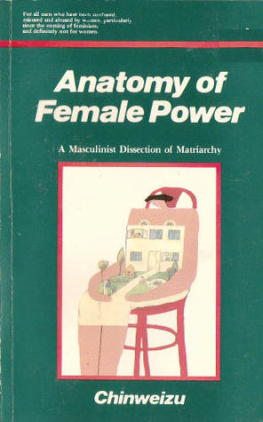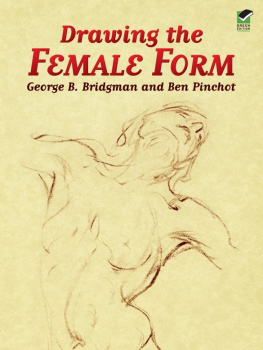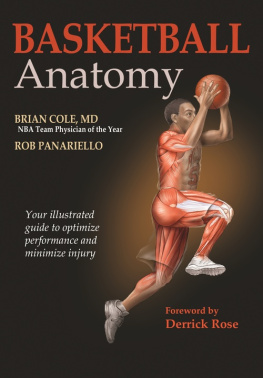Chinweizu - Anatomy of female power: A masculinist dissection of matriarchy
Here you can read online Chinweizu - Anatomy of female power: A masculinist dissection of matriarchy full text of the book (entire story) in english for free. Download pdf and epub, get meaning, cover and reviews about this ebook. year: 1990, publisher: Distributed (outside Nigeria) by Sundoor, genre: Romance novel. Description of the work, (preface) as well as reviews are available. Best literature library LitArk.com created for fans of good reading and offers a wide selection of genres:
Romance novel
Science fiction
Adventure
Detective
Science
History
Home and family
Prose
Art
Politics
Computer
Non-fiction
Religion
Business
Children
Humor
Choose a favorite category and find really read worthwhile books. Enjoy immersion in the world of imagination, feel the emotions of the characters or learn something new for yourself, make an fascinating discovery.
- Book:Anatomy of female power: A masculinist dissection of matriarchy
- Author:
- Publisher:Distributed (outside Nigeria) by Sundoor
- Genre:
- Year:1990
- Rating:3 / 5
- Favourites:Add to favourites
- Your mark:
- 60
- 1
- 2
- 3
- 4
- 5
Anatomy of female power: A masculinist dissection of matriarchy: summary, description and annotation
We offer to read an annotation, description, summary or preface (depends on what the author of the book "Anatomy of female power: A masculinist dissection of matriarchy" wrote himself). If you haven't found the necessary information about the book — write in the comments, we will try to find it.
Chinweizu: author's other books
Who wrote Anatomy of female power: A masculinist dissection of matriarchy? Find out the surname, the name of the author of the book and a list of all author's works by series.
Anatomy of female power: A masculinist dissection of matriarchy — read online for free the complete book (whole text) full work
Below is the text of the book, divided by pages. System saving the place of the last page read, allows you to conveniently read the book "Anatomy of female power: A masculinist dissection of matriarchy" online for free, without having to search again every time where you left off. Put a bookmark, and you can go to the page where you finished reading at any time.
Font size:
Interval:
Bookmark:
Note to the digital edition: all printing errors have been preserved. As spelling was inconsistent, we standardized it making it British. Numbering is consigned between {brackets} at the end of each page, thus preserving the original as much as possible.
Anatomy of Female Power
In this brief treatise, Chinweizu challenges one of the fundamental premises of feminism. He shows how women rule men and have always ruled men; and he outlines what men might do to reduce female power, and so advance toward equality, in hardships and privileges, with women.
Chinweizu is a Nigerian cultural critic, poet and occidentalist. His books, essays and newspaper articles have been published in Africa, Europe and North America. His popular column, "The Chinweizu Observatory", appears in the Sunday Vanguard (Lagos).
He brings to his cultural analysis his skills as a. journalist, his experiences as a traveller, and his training in various disciplines: Mathematics and Philosophy (M.I.T.), American Studies and History (S.U.N.Y. at Buffalo), and post-doctoral research in Economics (M.I.T.). His recreations are dancing and mathematics.
Pero Press
P.O. Box
FestacTown
Lagos, Nigeria.
Chinweizu, 1990
First Published
Second printing
ISBN 978 2651 05 2
October 1990
November 1990
All rights reserved. No part of this publication may be reproduced or transmitted, in any form or by any means, without the prior and written permission of the publisher.
Printed in Nigeria
Dedication
To the handful of women now in my life (platonic friends, lovers, ex-lovers, lovers-to-be);
To the countless others who have slipped in and out of my life; and especially
To those who have attempted to marry me:
From them I have learnt most of what I know about women. {v}
Epigraphs
The object of woman's existence is not to war with man, or allow man to war with her, but simply to conquer him and hold him in subservience without so much as a threat or a blow. Clever women always do this; clever women have always done it.
- Marie Corelli, British novelist.
What woman hasn't been able to wrap a man around her fingers, if she puts her mind to it?
- Regina Joseph, Nigerian columnist.
You think: We men are clever. If you see womankind and watch how four or five of them sit together and tell each other things, you think: Instead of chatting here, they ought to get up, go home and cut grass. As you talk like this to each other, you think in your own minds: They are stupid and ignorant. See, my grandchild, they are not stupid. Nothing in the whole world is cleverer than the female sex. Know this: If you are as other men, you are not as intelligent as a woman ... I tell you: a woman is clever. And if you respect what is woman's business your reputation will not suffer. And your wife will honour you, because she knows that you have learnt to keep quiet like other men.
- Teachings of the Chagga Elders of T anzan ia. {vi}
Contents
Epigraphs vi
Prologue: Who Rules Who - Man or Woman
Part I: Features of Female
The Five Pillars of Female Power
Womb, Kitchen and Cradle: Control Centres of Female Power
Part II: Mother p ower - In the Nest of His Father s Matriarch
The Commandant of the Cradle
Part III: Bridepower - In the Cockpit of Courtship
The Powers of Her Body-beautiful
Love: Male and Female
Courtship: The Hunting of the Love-smitten Man
Wedding: The Bride's Triumph Ceremony
Part IV: Wifepower - In the Nest of His Own Matriarch
The Husband Managers
The Facade of Patriarchy
The Double Standard
The Silly Souls of Men
Man's Fear of Woman
The Baby as Wife's Weapon
The Penalties of Divorce
Part V: Matriarchy and its Discontents
The Matriarch: Sovereign of Her Nest
Feminism: A Revolt in Paradise
Epilogue: On Masculinism
Notes
{vii}
Prologue
Who Rules Who - Man or Woman?
In the last couple of decades, feminist propaganda has sought to per suade the world that women are powerless in society, and that men are natural oppressors of women. It claims that wives are subordinate to their husbands in the home; and that, outside the home, men have excluded women from political, economic and cultural power.
Some, like Ellen Galford of Britain, say: "Women are slaves and men are masters". 4
Some, like Andrea Dworkin of the USA, say: "All housewives are economically exploited; all working women are". 5
And some, like Carol Hanisch of the USA, have even gone so far to deny that women have any power at a ll over men.
The term men's liberation was derived, from the term womens liberation and thus insinuates that women have power over men. Its very name infers liberation from female domination and is therefore an inversion of fact as well as women's liberation principles. 6
As a rule, those few women have not been taken seriously who have bothered to acknowledge female power over men: like Denyse Plummer, the Trinidadian calypso singer, who proclaims that "woman is boss; 7 or like the expatriate Nigerian actress Patti Boulaye, who says: "most men are controlled by women; 8 or like the Argentinian, Esther Vilar, who said:
Women let men work for them, think for them and take on their responsibilities - in fact, they exploit them. 9 {9}
This great division of opinion among women should prompt one to ask: Which kind of claim is true? Which picture is the illusion, and which the reality?
Conventional modern opinion, as well as the social science consensus, would appear to support the feminist picture. It is conventionally assumed that female power, if it existed, would be wielded by women, through some public system of authority. It is also held, by conventional expert opinion, that matriarchs (who would be the natural wielders of female power) are illusory; and that matriarchy (a system of females wielding authority) does not exist.
For instance, The Concise Oxford Dictionary (6th Edition, 1976) defines a matriarch as a "woman corresponding in status to a patriarch (usually jocular)". The venerable compilers of that dictionary add that the word is derived "from Latin mater mother on false analogy of patriarch". Treating the notion as a joke derived on a "false analogy" suggests that matriarchs are illusory, phantom figures. However, powerful matrons, often elderly, who dominate family groups and clans, who are patriarchs in all but their gender, are neither unknown nor rare.
Similarly, according to the Encyclopaedia Britannica , (15th Edition, 1986) matriarchy is a "social system in which familial and political authority is wielded by women". And that repository of conventional knowledge adds that "the consensus among modern anthropologists and sociologists is that a strictly matriarchal society never existed." This is despite the fact that, in some African and Native American societies, women did have their structures of political authority parallel to and countervailing those of men.
When a definition will not allow us to acknowledge what is before us, it is flawed. For example, if we defined the sun as a square star, it would then be, strictly speaking, true that there isn't and never has been a sun. But since such a claim flies in the face of our experience, we would have to reject that definition for not capturing the reality, and for misleading us into the absurdity of denying the existence of the sun we can see and point at. On similar grounds, we would have to reject the conventional definitions of matriarch and matriarchy for flying in the face of the examples cited above.
In any case, even if no "strictly matriarchal society" ever existed, that would not imply that female power did not exist. Authority is only one of the many types of power; and the wielding of authority is not necessary for the exercise of many types of power. Power without authority {10} is neither unknown nor rare, as is recognized when it is said that someone is "the power behind the throne".
Next pageFont size:
Interval:
Bookmark:
Similar books «Anatomy of female power: A masculinist dissection of matriarchy»
Look at similar books to Anatomy of female power: A masculinist dissection of matriarchy. We have selected literature similar in name and meaning in the hope of providing readers with more options to find new, interesting, not yet read works.
Discussion, reviews of the book Anatomy of female power: A masculinist dissection of matriarchy and just readers' own opinions. Leave your comments, write what you think about the work, its meaning or the main characters. Specify what exactly you liked and what you didn't like, and why you think so.








